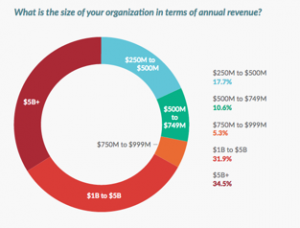
If you work on the high street, you won’t need reminding that traditional, bricks and mortar retail hasn’t had an easy go of it in recent years. During turbulent economic times, barely a week went by without breaking news of another major high street multiple facing catastrophic failure. Sadly, the final death throes of the many small and independent retailers joining them in bankruptcy went largely unreported. It’s a depressing thought, and one that not only impacts those who work in the industry but potentially damages the quality of life of each and every one of us, as our towns and city centres slowly come apart at the seams.
But there is light at the end of the tunnel and, as an eternal optimist, I’m pleased to start this book on a positive note.
After half a decade of financial gloom, it looks like the economy might just be turning a corner. At time of writing (October 2014), retail sales in the UK are on the up (increasing by 4.3 per cent since the previous year) and analysts are predicting bumper revenues in the run up to Christmas bolstered by high profile, US-style sales events like Black Friday and Cyber Monday.
Anecdotally, even on the streets of the northern English town where I live (one of the worst affected by the global downturn), I’m seeing wooden hoardings being pulled down from tired, old shop fronts and new businesses rising from the ashes of our once feared, soon-to-be derelict high streets. Perhaps it’s a little early to be so optimistic (we’ll know more by the time this book is printed) – but this sounds like good news for everyone.
But this doesn’t necessarily mean a return to easy street.
Competition, complacency and the high costs associated with operating a “traditional” high street business all still represent a significant risk. However, for many businesses which continue to struggle on today’s high streets, it is all too easy to point the finger of blame for their decline at factors, which they believe, are beyond their control.
The Internet, alongside the wider economy, out-of-town shopping and the major supermarkets, is a very obvious target when looking for a fall guy responsible for the decline of the retail industry in our inner cities and town centres. But is this fair?
According to the UK Office for National Statistics, in August 2014 the Internet accounted for only 11 per cent of all retail sales. There is no doubt the Internet represents a major challenge for the high street but it is not solely (or even significantly) to blame for its current difficulties.
Instead of looking to apportion blame, the question these businesses should be asking themselves is why should a high street business not move with the times and attempt to harness some of the amazing opportunities available to their high-tech counterparts?
I would personally argue that the Internet was not to blame for the demise of major high street chains like Woolworths or Comet who left our high streets and retail parks (in the UK) with gaping holes and shuttered retail units. In fact, I believe the Web could have offered both of these brands a significant lifeline, had they been more interested in competing in a digital age than defending a glorious past. It was complacency, poor management, a complete lack of agility (something that Internet brands definitely do not lack) and a general lack of direction that killed these high street behemoths. These were poor businesses living on borrowed time. The Internet and the weak economy simply put them out of their misery.
In the face of online competition some businesses will struggle more than others.
It could be argued that the Web disrupted the travel industry and forced the closure of numerous independent high street travel agents. Similarly, booksellers and record stores may also have fallen foul of mighty online retailers and changes in technology. But using the same argument, the Internet has also significantly disrupted the gaming/gambling industry with many bookmakers taking their businesses offshore and setting up online. Despite this, they continue to thrive on (and some would suggest are beginning to suffocate) the high street. Taking the ethical questions surrounding the gaming industry’s grip on the high street out of the equation, I would suggest the difference between success and failure was their ability to identify new business trends, attract new customers, drive new streams of revenue and take advantage of opportunities as and when they arrive (like the sudden availability of prime retail space at knockdown prices). Both the downturn and technology (alongside some clever and arguably, aggressive marketing) have been good to the gambling industry.
Not all high street businesses can expect to survive in the digital age.
Others, however, will thrive and this includes the very best, customer-focused, independent travel agents, booksellers and record stores. I believe these successful companies can enhance their fortunes by adopting business strategies normally associated with their online competitors. This doesn’t mean they will simply transfer their business from a high street operation to an online enterprise (many will develop a more forward looking “clicks and mortar” business model). They will become more social, more customer-focused and more agile. In short, they will become better real world businesses.
The above abridged text was taken from Bricks & Mortar Oughta: What Real World Businesses Can Learn from the Internet, now available for pre-order on Amazon.
Business & Finance Articles on Business 2 Community
(387)









